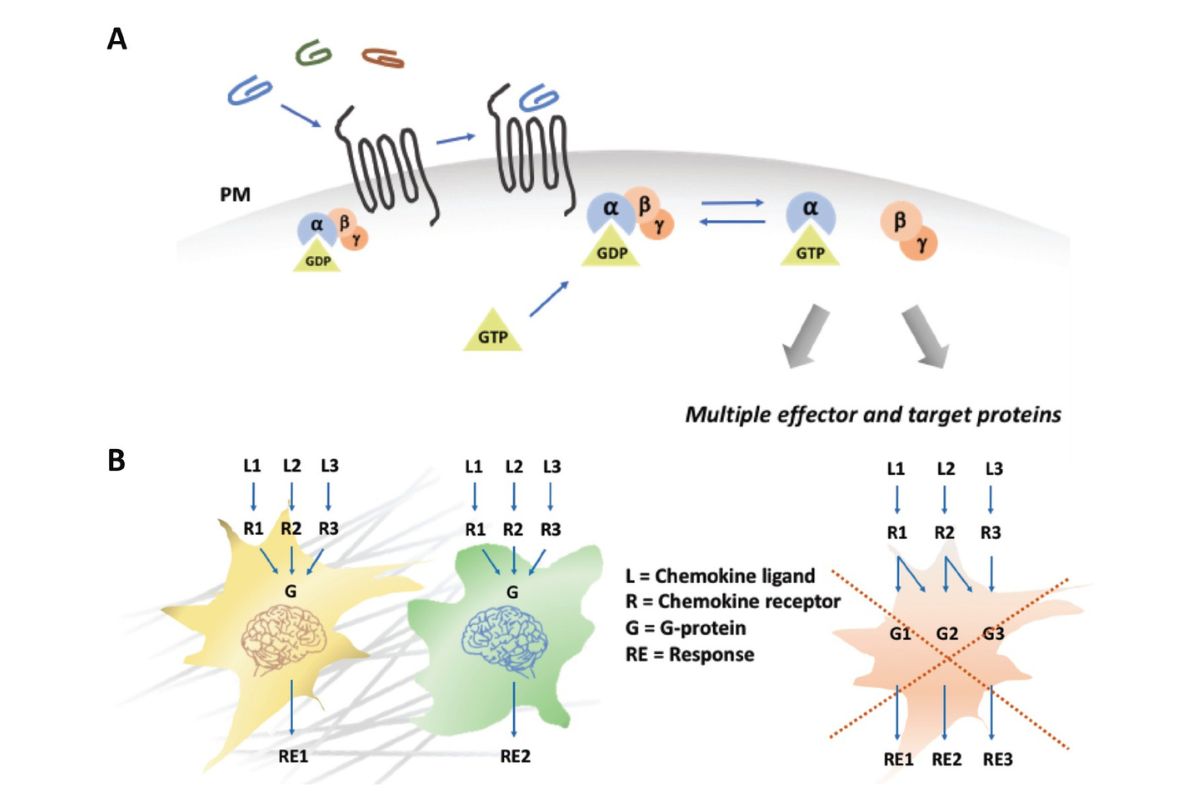
Chemokines are small proteins that play a crucial role in the immune system. They act as signaling molecules, guiding white blood cells to sites of infection, inflammation, or injury. But what exactly makes chemokines so important? These proteins help coordinate the body's defense mechanisms, ensuring that immune cells reach the right location at the right time. Without them, our bodies would struggle to fight off infections and heal wounds. In this article, we'll explore 31 fascinating facts about chemokines that highlight their significance in maintaining health and combating diseases. From their discovery to their various functions, you'll gain a deeper understanding of these vital proteins.
What Are Chemokines?
Chemokines are small proteins that play a crucial role in the immune system. They act as signaling molecules, guiding the movement of immune cells to sites of infection or injury. Here are some fascinating facts about these vital proteins.
-
Chemokines are a type of cytokine, which are proteins important for cell signaling in the immune system.
-
They are named for their ability to induce chemotaxis, the movement of cells in response to chemical stimuli.
-
There are four main subfamilies of chemokines: C, CC, CXC, and CX3C, based on the arrangement of their cysteine residues.
-
The first chemokine discovered was interleukin-8 (IL-8), which attracts neutrophils to infection sites.
-
Chemokines bind to specific receptors on the surface of immune cells, triggering a response.
-
These receptors are G protein-coupled receptors (GPCRs), which are involved in many physiological processes.
-
Chemokines are involved in both acute and chronic inflammation, helping to recruit immune cells to affected areas.
-
They play a role in wound healing by attracting cells that help repair tissue.
-
Some chemokines are involved in the development of the immune system, guiding the migration of cells during embryogenesis.
-
Chemokines can also influence the behavior of cancer cells, affecting tumor growth and metastasis.
Chemokines in Disease
Chemokines are not only crucial for normal immune function but also play a role in various diseases. Understanding their role can help in developing new treatments.
-
In autoimmune diseases like rheumatoid arthritis, chemokines contribute to the inflammation and tissue damage.
-
HIV uses the chemokine receptor CCR5 to enter and infect immune cells.
-
Blocking chemokine receptors can be a strategy to prevent HIV infection.
-
Chemokines are involved in the recruitment of immune cells to atherosclerotic plaques, contributing to cardiovascular disease.
-
In asthma, chemokines attract eosinophils to the lungs, causing inflammation and airway constriction.
-
Certain chemokines are elevated in the blood of patients with sepsis, a severe infection that spreads throughout the body.
-
Chemokine levels can be used as biomarkers to diagnose and monitor the progression of diseases.
-
Targeting chemokine pathways is being explored as a therapeutic approach for cancer, aiming to inhibit tumor growth and spread.
-
In multiple sclerosis, chemokines attract immune cells to the central nervous system, leading to nerve damage.
-
Chemokine inhibitors are being tested in clinical trials for various inflammatory and autoimmune diseases.
Chemokines in Research
Research on chemokines continues to uncover new roles and potential therapeutic applications. Here are some recent findings and ongoing studies.
-
Scientists are studying how chemokines regulate the immune response to infections like COVID-19.
-
New chemokine receptors are still being discovered, expanding our understanding of the immune system.
-
Researchers are investigating how chemokines influence the gut microbiome and its impact on health.
-
Chemokines are being studied for their role in neuroinflammation and neurodegenerative diseases like Alzheimer's.
-
Advances in imaging techniques allow scientists to visualize chemokine activity in living organisms.
-
Gene editing technologies like CRISPR are being used to study the function of specific chemokines and their receptors.
-
Chemokines are being explored as potential targets for vaccines, aiming to enhance immune responses.
-
Personalized medicine approaches are considering individual variations in chemokine genes to tailor treatments.
-
Studies are examining how diet and lifestyle factors influence chemokine levels and immune function.
-
Researchers are developing new drugs that mimic or block chemokine activity to treat various diseases.
-
Understanding chemokine networks can help in designing better immunotherapies for conditions like cancer and chronic infections.
The Final Word on Chemokines
Chemokines play a crucial role in the immune system, guiding cells to where they're needed most. These small proteins are like traffic cops, directing white blood cells to infection sites. Without them, our bodies would struggle to fight off diseases. They’re involved in everything from wound healing to chronic inflammation. Understanding chemokines can lead to breakthroughs in treating conditions like cancer, HIV, and autoimmune diseases.
Research continues to uncover new functions and potential therapies involving chemokines. Scientists are exploring how to manipulate these proteins to boost immune responses or reduce harmful inflammation. The more we learn, the better equipped we are to develop targeted treatments.
Chemokines may be tiny, but their impact on health is enormous. Keep an eye on this field—it’s one to watch for future medical advancements.
Was this page helpful?
Our commitment to delivering trustworthy and engaging content is at the heart of what we do. Each fact on our site is contributed by real users like you, bringing a wealth of diverse insights and information. To ensure the highest standards of accuracy and reliability, our dedicated editors meticulously review each submission. This process guarantees that the facts we share are not only fascinating but also credible. Trust in our commitment to quality and authenticity as you explore and learn with us.
